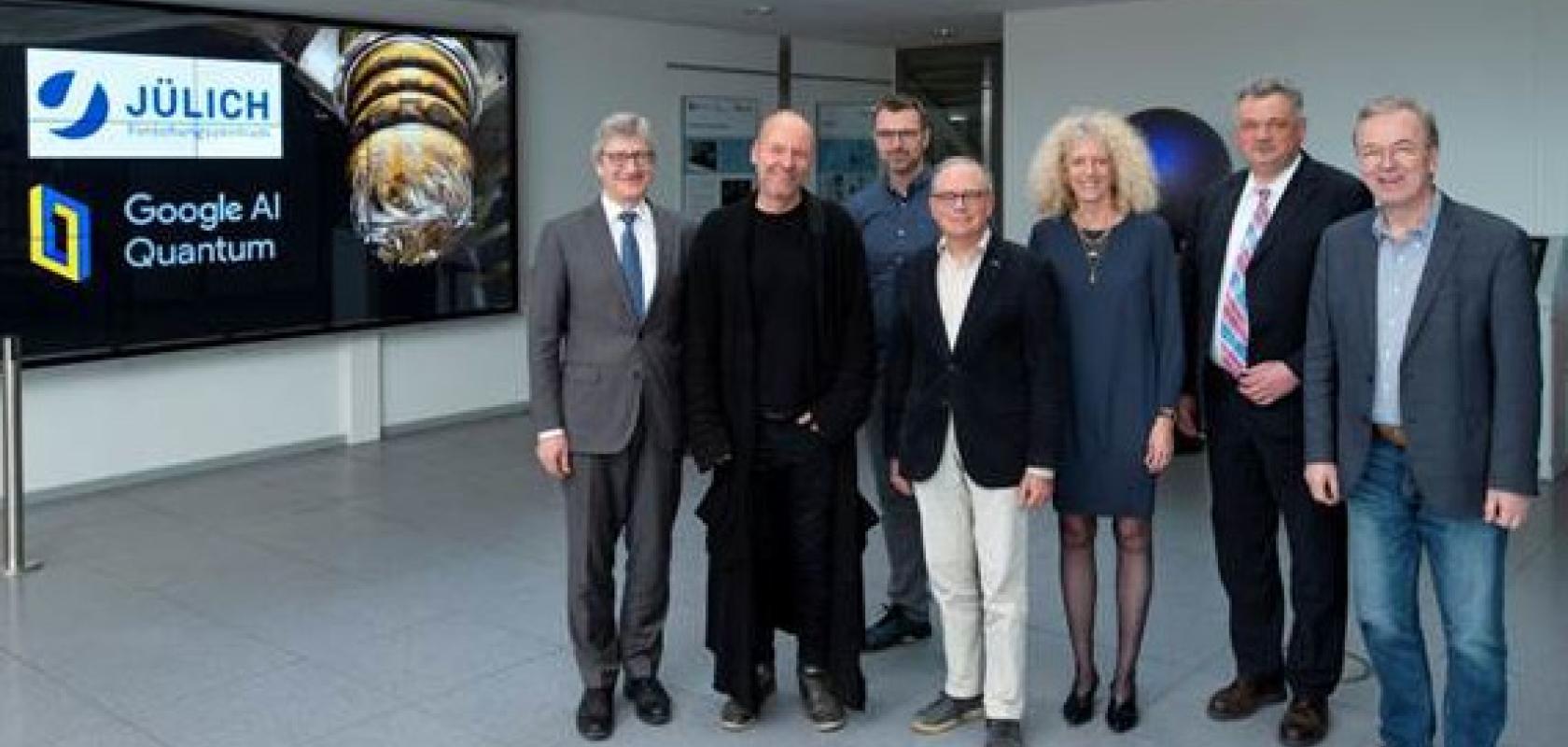Forschungszentrum Jülich and Google have announced a partnership to accelerate research in the field of quantum computing. The partnership will include joint research and training in the fields of quantum technologies and quantum algorithms and the mutual use of quantum hardware.
The German Federal Minister of Economics Peter Altmaier congratulated on the German-American research partnership during his visit to Google's headquarters in Mountain View, California. 'Quantum computers have the potential to solve certain types of calculations much more efficiently than today’s technologies can. Quantum computers and quantum algorithms are therefore very important technologies which will shape the future and are being followed closely around the world. At present, quantum computers are still very much at in their infancy, and it is difficult to predict what will become possible – and what perhaps will not. Researchers still have a lot of basic research to do in this area. It was the same situation when we were developing today’s computers. I am therefore delighted that Google and Forschungszentrum Jülich have decided to cooperate in the important forward-looking field of quantum computers,' said Altmaier.
Google has been working on the development of quantum processors and quantum algorithms for years. Exploring new technologies for quantum computers is also a key research focus at Forschungszentrum Jülich. The German research centre will operate and make publicly accessible a European quantum computer with 50 to 100 superconducting qubits, to be developed within the EU's Quantum Flagship Program, a large-scale initiative in the field of quantum technologies funded at the €1 billion over the next ten years.
'Quantum computers offer options to solve certain algorithmic problems in seconds which would take years with established supercomputers. Google, a company that sets new standards in this field, is an important partner for us to join forces in research to advance this revolutionary technology,' explains Professor Wolfgang Marquardt, Chairman of the Board of Directors of Forschungszentrum Jülich.
'Quantum processors may support the development of new environmentally friendly technologies and revolutionize artificial intelligence technologies. We are excited to see the European developments and, as part of the cooperation with the Forschungszentrum Jülich, we look forward to contributing to the success of European quantum technologies' explains Dr Hartmut Neven, Technical Director at Google and Head of the Quantum Artificial Intelligence Lab.
Google and Forschungszentrum Jülich will support each other, especially in training junior researchers and experts. 'A shortage of specialists, like in the field of artificial intelligence, is also foreseeable in the field of quantum computing. For this reason, we invest in training and promoting top academic talent' says Dr Markus Hoffmann, Head of Quantum Partnerships at Google.
The partnership includes regular research exchange. 'Hands-on workshop and spring schools will be organised at Forschungszentrum Jülich. The Jülich UNified Infrastructure for Quantum computing (JUNIQ), a European quantum computer user facility planned for the Jülich Supercomputing Centre (JSC), will be available for training industry professionals, and will be accessible in the cloud to European users,' says Professor Kristel Michielsen from the JSC, head of the research group Quantum Information Processing.
Furthermore, Google and Forschungszentrum Jülich will engage in joint research in the field of hardware and quantum algorithms. Researchers on both sides will perform simulations on supercomputers at the JSC, and experiment with Google's quantum processors.
Forschungszentrum Jülich and Google have commenced the teamwork. Professor Kristel Michielsen and Prof. Tommaso Calarco from Forschungszentrum Jülich have received Google Faculty Research Awards in 2018. Professor Frank Wilhelm-Mauch, recipient of a Google Faculty Research Award in 2015, is a collaborator of Forschungszentrum Jülich within the subproject OpenSuperQ of the European 'Quantum Flagship' project.


